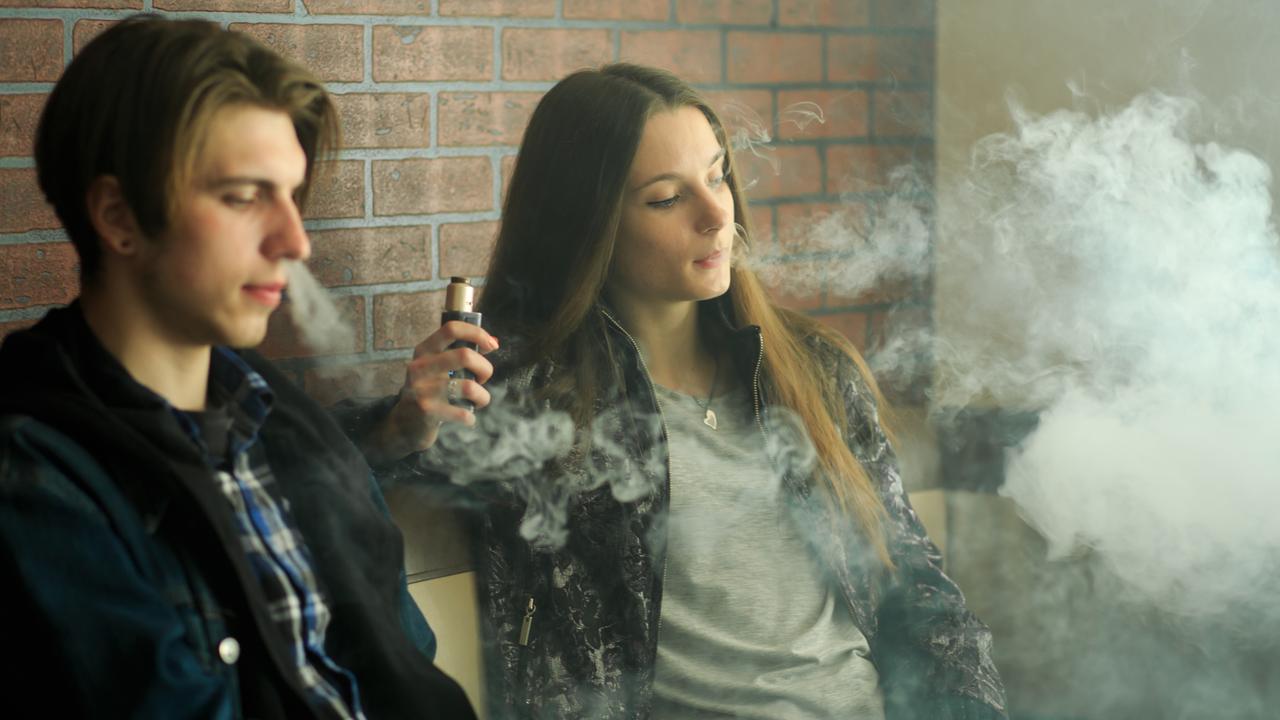Cancer Council Queensland says warning about childhood vaping crisis ignored
Years of warnings about a childhood vaping crisis have been ignored by authorities, Queensland’s peak cancer body says, but Education Minister Grace Grace says current school education programs are doing enough to stop the scourge.
Education
Don't miss out on the headlines from Education. Followed categories will be added to My News.
Queensland’s peak cancer body says years of warnings about an unfolding childhood vaping crisis have been ignored by authorities, with alarming research showing kids who vape are five times more likely to take up deadly smoking habits.
Cancer Council Queensland says despite actively urging the Palaszczuk Government to commit to stronger action since early 2020 over the growing threat of e-cigarettes, the government has failed to commit to stronger policies.
Responding to a Courier-Mail series on the vaping scourge affecting children as young as 10, Cancer Council Queensland CEO Chris McMillan said “meaningful action” was needed to “prevent another generation becoming addicted to dangerous chemicals that are sucked into their lungs”.

Its most recent request to Health Minister Yvette D’Ath was in 2021, while it said all Australian governments had pledged to tackle the “unfolding public health crisis” as early as 2017.
“This is an evolving public health crisis affecting young Australians which is flying under the radar, with commercial entities exploiting a disconnect between awareness of the problem, evidence, rules and their enforcement,” Mr McMillan said.
“Given the similarities with tobacco, we know that simply educating or punishing children won’t work without stronger action from federal and state governments.”
The Cancer Council intends to write to Education Minister Grace Grace to request improved action in the coming months.
Australian Institute of Health and Welfare data shows use of e-cigarettes by 15-to-24-year-olds doubled in the three years to 2019.
Findings published in the journal Addiction reveal 14-year-olds who use e-cigarettes are five times as likely to take up smoking by age 17 as non-e-cigarette users, and three times as likely to be frequent smokers.

On Monday, Ms Grace told The Courier-Mail vaping was no worse a problem than smoking cigarettes was when she was at school.
On Tuesday, after the newspaper reported widespread concern from Queensland GPs over children’s health, she conceded the issue “seems to be taking off” in schools.
But when asked why Queensland could not take the lead instead of relying on a national approach, Ms Grace claimed tobacco, vaping and alcohol education programs being delivered in schools were sufficient.
Heart Foundation director of health strategy Julie Anne Mitchell said there was no “safe level” of vaping.
“We’re concerned that the use of e-cigarettes has increased among young people who have never smoked, and there’s been a significant increase in the number of young people smoking e-cigarettes more often,” Ms Mitchell said.
In Queensland, NSW and Victoria the sale of e-cigarettes is illegal to people under 18. It is also illegal to display, promote or advertise them.






